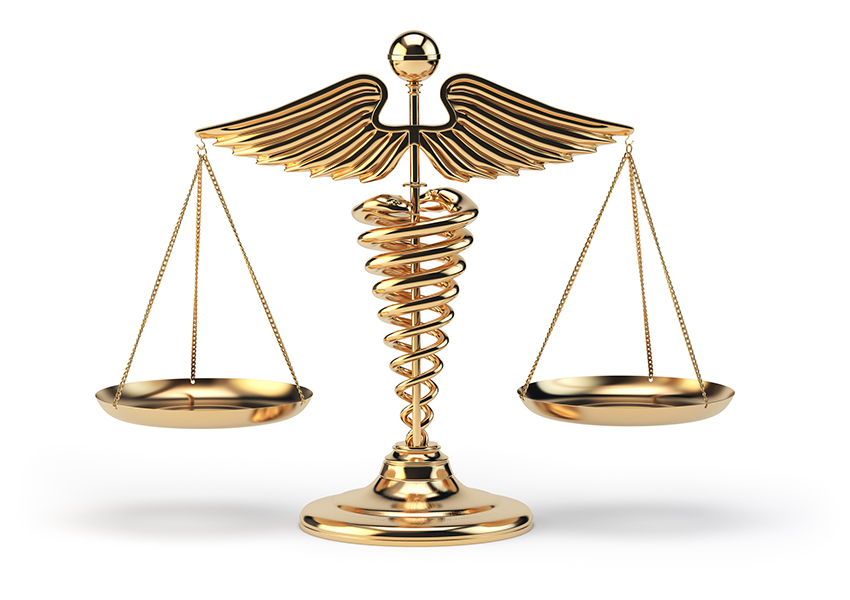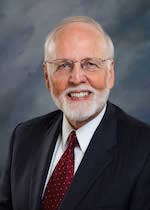
I write these paragraphs on a day when our nation celebrates the transformative leadership of Dr. Martin Luther King, Jr. No person in 20th Century America did more to awaken the conscience of our society to the injustices of racism, poverty, and violence. The results of his life’s work continue to bear the fruits of justice even during the pandemic of a deadly virus and the pandemic of deadly political vitriol.
One of Dr. King’s most oft-repeated statements was something he said in a sermon at a Jewish temple in California. He quoted some familiar lines from the well-known hymn of the civil rights movement, “We Shall Overcome.” Then King said he believed we would overcome “because somehow the arc of the moral universe is long but it bends toward justice.”[1] He had faith that injustice could not reign forever. Unfairness anywhere in society diminishes all of us. Together, we would continue to move in the direction of greater fairness.
Dr. King was keenly aware of the multitude of ways in which vulnerable people in our society suffer unfairly. One of the most disturbing examples then and now is the lack of adequate health care. At a press conference in Chicago, prior to a meeting on health, King said, “Of all the forms of inequality, injustice in health is the most shocking and the most inhuman because it often results in physical death.”[2] Since the time of King’s remarks, our nation has made progress. The arc has bent slowly toward justice. Still, we must wonder why a nation as wealthy as ours fails to ensure the provision of essential health care to all who need it. How may we best continue to bend the arc of history toward justice?
One of the more promising developments in recent years has been the emergence of a collaborative approach to policymaking under the banner of “Health in All Policies.”[3] This initiative stems from the recognition that factors leading to health or to illness are significantly affected by the interplay of many social policies, and not just the ones traditionally labeled as health policies. For example, the policies governing transportation, education, employment, and commerce all have the potential to affect the health of communities. By attending to the complex interaction of these policies as they either promote or undermine health, we can address inequities in health much more comprehensively. Every policy governing social institutions needs scrutiny from the perspective of its likely effects on health.
In addition to the catchphrase, “Health in All Policies,” I would like to propose a companion refrain, “Fairness in All Health Policies.” Here and in two previous blog entries on this website, I have chosen the language of fairness as a way of discussing principles of health equity and distributive justice.[4] Even pre-school children in our culture will often express their convictions about what is fair or unfair. If a five-year old tells you “That’s not fair!” it is likely to be said with earnest feeling. It is an indictment requiring some kind of explanation.
How shall we assess health policy proposals in terms of their fairness? One of the most prominent works on social justice in the last hundred years is a view that its author called “justice as fairness.” John Rawls opened his hugely influential treatise, A Theory of Justice, with these now famous lines: “Justice is the first virtue of social institutions, as truth is of systems of thought. A theory however elegant and economical must be rejected or revised if it is untrue; likewise laws and institutions no matter how efficient and well-arranged must be reformed or abolished if they are unjust.”[5] We may say the same about health policies. No matter how efficient or conducive to desired outcomes they may be, they are ethically insufficient if they are unfair.
In order to derive principles of fairness, Rawls presents an analytical stratagem he calls the “original position.”[6] Rawls asks his readers to imagine a scene in which a group of policy makers are gathered to establish the rules that will govern social institutions, such as health care, in ways that are as fair as possible. The decision makers are imagined to be rational, free, and equal. They have sufficient information to know how various alternatives are likely to affect people living in the society that will be governed by the rules. The one thing the decision makers do not know is what positions they will individually occupy in that future society. They do not know, for example, whether they will be rich or poor, highly or poorly educated, living in cities or on farms. They do not know about their race, ethnicity, or religion. Nor do they know what their political affiliations are. Under these procedurally fair provisions, Rawls believes fair social policies can be developed.
It would be impossible in the space of a short blog entry to discuss the many implications this approach to fairness would have for health policies. However, it should be clear enough that the policy makers would choose policies that protected the most vulnerable members of the society. Policies judged likely to produce the most benefits for the most people might still be deemed unfair if they disadvantaged those who are already suffering the greatest hardships. In other words, policy proposals would be assessed not just in terms of their overall utility but also (and decisively) in terms of their fairness. Health policies that would lead to the kind of disparities we see in our society would be deemed unjust and in need of revision.
Beyond the thought experiment proposed by Rawls, are there practical ways to help us achieve greater fairness? One of the more creative methodological proposals to appear recently comes from the Institute for Healthcare Improvement (IHI). This approach uses what is called an “Equity Action Lab.”[7] Over the course of two to six months, organizers collect data on a particular topic of concern. A team of interested and informed stakeholders is assembled that includes members most likely to be affected by the policy changes. After fact-finding and logistical preparations are complete, the Action Lab is convened either virtually or in person for a number of days to develop an actionable plan for improving equity. With the plan in place, the participants enter a “sprint” phase of 100 days to implement the plan and report regularly on progress. Finally, there is a sustainability phase to ensure that movement toward equity can be perpetuated.
The success of approaches such as IHI’s Equity Action Lab help to dispel the belief that unfair health outcomes are intractable. The arc of history can bend toward greater justice. We can envision a society in which all health policies are assessed for their fairness. And we can change.
Author Bio:

Gerald Winslow, PhD
Dr. Winslow is the Founding Director of the Institute for Health Policy and Leadership and the Director for the Center for Christian Bioethics. He is also a Professor of Religion and Ethics at Loma Linda University School of Religion. His research interests include biomedical ethics and the relationship of social ethics to health policy.
Reference:
- [1] Martin Luther King, Jr. Sermon delivered at Temple Israel, Hollywood, California, Feb. 26, 1965. Available at: https://www.americanrhetoric.com/speeches/mlktempleisraelhollywood.htm
- [2] Charlene Galarneau, “Getting Martin Luther King’s Words Right,” Feb., 2018, available at: https://pnhp.org/news/getting-martin-luther-kings-words-right/ Dr. King made this statement at a press conference in Chicago on March 25, 1966.
- [3] Centers for Disease Control and Prevention, “Health in All Policies,” June 9, 2016. Statement available at: https://www.cdc.gov/policy/hiap/index.html
- [4] For the previous two blogs on fairness, see “Fairness in a Pandemic,” https://ihpl.llu.edu/blog/fairness-pandemic and “Fairness in COVID-19 Vaccine Allocation,” https://ihpl.llu.edu/blog/fairness-covid-19-vaccine-allocation
- [5] John Rawls, A Theory of Justice, Cambridge, MA: Harvard University Press, 1971, p. 3.
- [6] Ibid, pp. 17-22.
- [7] IHI Multimedia Team, “Testing New Ways to Put Equity into Action,” Jan. 7, 2021, available at http://www.ihi.org/communities/blogs/testing-new-ways-to-put-equity-into-action?utm_campaign=tw&utm_medium=email&_hsmi=106019919&_hsenc=p2ANqtz-9gD4hDugftw5ZDBlBkCwN57bD_e0WG1CkbiwKnWC8l5hkwLVTtTfsuTKIGR91qG_AG1nE_Kp7QzjZolFdWvGIJctvy6g&utm_content=105809532&utm_source=hs_email
